31 Plants That Cause Allergies In Cats, Dogs & Other Pets

As spring approaches, everyone is eager to brighten their garden with colorful flowers, trees, and lush green grass. However, before decorating their yards, pet owners need to take several precautions to ensure their pets are safe from the very flowers they are cultivating.
Many of those lovely spring blooms aren’t so pet-friendly and can cause allergic reactions in their furry companions. Some are even poisonous and deadly.
So, it’s important to know which common plants you should avoid if you have family members that are a little hairier than the rest.
Table of Contents
- Popular Plants to Avoid As They Cause Allergies In Pets
- Oak is bad for most common pets
- Male Juniper bushes are harmful to pets (female Junipers are fine)
- Bottlebrush plants can cause skin irritation in cats and dogs
- Tulips are deadly to both cats and dogs
- Paper Birches cause allergies in a wide range of common pets
- Acacia shrubs are bad for dogs
- Poplar will cause an allergic reaction in felines and canines
- Male Podocarpus and Male Yews are toxic to most animals
- 5 Euphorbia plants that are poisonous to pets
- Primrose is a skin irritant to most pets
- Purple Leaf Velvet plant causes pet allergies
- Cocoa mulch attracts both cats dogs. When ingested the coco content causes serious allergic reactions
- Common Bermuda Grass causes itching in most common pets
- The Elephant Ear plant is an irritant to pets
- The Wandering Jew is not so pet friendly
- Snailseed Vine is a common plant that is harmful to your pets
- Daylilies are an irritant to dogs
- Castor Bean plants are unfriendly to both cats and dogs
- The Gas plant triggers allergic reactions in cats and dogs
- 8 Other common plants species that cause pet allergies
- How to Control Pet Allergies
Popular Plants to Avoid As They Cause Allergies In Pets
Pet allergies can originate from a variety of plants of different kinds including indoor plants, outdoor plants, grasses, shrubs, and trees.
There are two types of allergies in pets including inhalant allergy and contact allergy.
 Plants that cause pet allergies produce pollen, a leading allergen among human beings as well as pets. Besides the pollen, other plants can cause allergies to your pets upon contact with them.
Plants that cause pet allergies produce pollen, a leading allergen among human beings as well as pets. Besides the pollen, other plants can cause allergies to your pets upon contact with them.
In addition to the typical symptoms of watery eyes and sneezing, plant allergies can also cause different signs and symptoms in pets including skin irritations, excessive chewing, rolling around in the grass to scratch the head or tail, difficulty in breathing, red eyes, scratchy throat, excessive licking of the skin, reverse sneezing, and much more.
Compared to humans, pets are more exposed to allergens because, as well as inhaling pollens through the air like humans do, our furry friends often roll or walk through pollen when it lands on the ground. This pollen eventually travels down their hair shafts and onto their skins, resulting in chronic allergic reactions.
Here are some of the plants that can cause either contact or inhalant allergies.
Oak is bad for most common pets
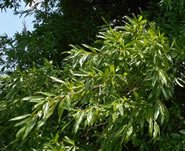 There are different varieties of oak trees including black oak, willow oak, water oak, Japanese evergreen oak, post oak, pin oak, bur oak, chinkapin, and much more.
There are different varieties of oak trees including black oak, willow oak, water oak, Japanese evergreen oak, post oak, pin oak, bur oak, chinkapin, and much more.
The pollen from this plant is responsible for a number of allergies in pets.
Be sure to check the specific oak you plan to plant, or that already exists in your garden against known allergens in the species of your pet.
Male Juniper bushes are harmful to pets (female Junipers are fine)
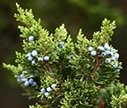 These plants produce a lot of allergenic pollen, causing pets to scratch and itch.
These plants produce a lot of allergenic pollen, causing pets to scratch and itch.
Only female juniper plants (with berries) do not produce allergens.
So if you must plant Junipers be sure to ask your supplier for female plants only.
Bottlebrush plants can cause skin irritation in cats and dogs
These small plants or shrubs grow up to 15 feet.
Although the Bottlebrush is non-toxic to both cats and dogs it can irritate their skin. Their pollen is needle-point sharp and tiny.
This pollen sticks on pets whenever they come into direct contact with the flowers of the plant and causes irritation to the skin.
Tulips are deadly to both cats and dogs
 Tulips may be beautiful flowers and are easy to grow. Coming in many different colors these gorgeous plants can bring even the dreariest of gardens to life.
Tulips may be beautiful flowers and are easy to grow. Coming in many different colors these gorgeous plants can bring even the dreariest of gardens to life.
However, they are deadly to cats and dogs!
Paper Birches cause allergies in a wide range of common pets
These trees grow as tall as 60 feet and about 35 feet wide.
Their pollens are responsible for a variety of pet allergies across several different species of animals.
Acacia shrubs are bad for dogs
Their pollen can trigger scratching and itching in a majority of pets including dogs.
Poplar will cause an allergic reaction in felines and canines
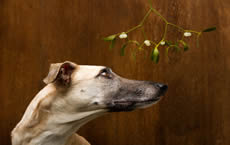 Most homeowners love growing poplar trees because they not only grow fast but also bring beauty and shade to the yard.
Most homeowners love growing poplar trees because they not only grow fast but also bring beauty and shade to the yard.
There are approximately 35 different Poplar species.
Their pollen can trigger different allergic reactions in pets.
Male Podocarpus and Male Yews are toxic to most animals
The pollens from these two plants can trigger a series of allergic reactions in pets.
These plants are also poisonous when ingested and should be avoided or kept well out of the reach of animals.
Bear in mind that cats are great climbers and jumpers so such plants should be caged off or not planted at all.
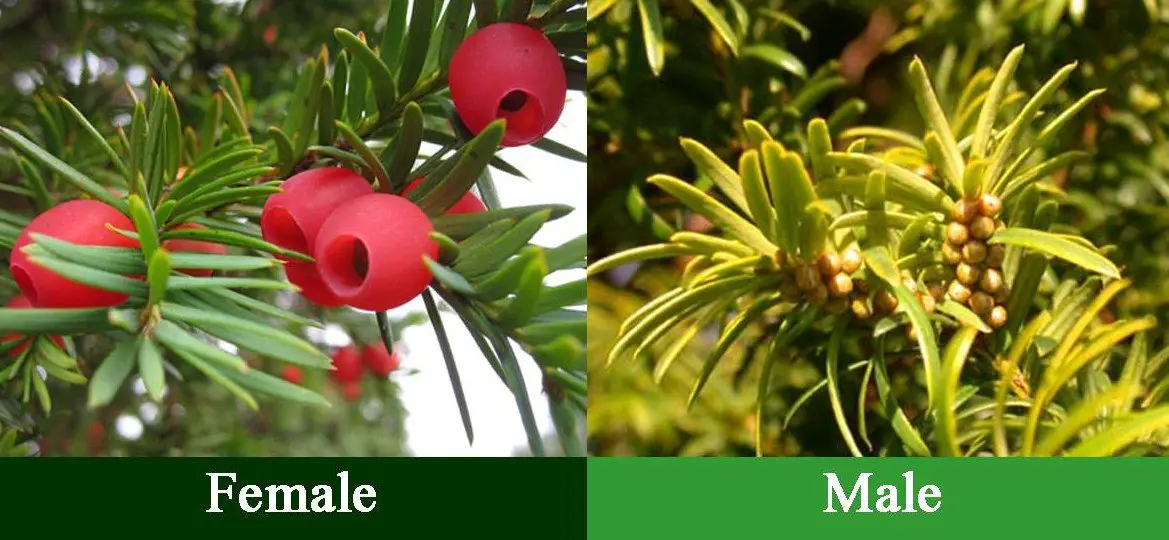
5 Euphorbia plants that are poisonous to pets
Euphorbia plants are poisonous to pets.
All Euphorbia species produce a sap that is poisonous to pets.
Some examples:

- milk brush
- spurge
- pencil tree
- chenille plant
- and all others
Their pollen grains are also allergenic.
Mere contact with these plants can also trigger scratching, itching, red eyes, and runny eyes in a majority of pets.
Primrose is a skin irritant to most pets
Another plant that produces truly beautiful flowers.
 The different hues of the petals on these flowers make any garden look colourful.
The different hues of the petals on these flowers make any garden look colourful.
These plants are therefore very popular among gardeners who do not realize the risk they pose to the furrier members of the family.
These outdoor and indoor plants can also be grown indoors.
Contact with primroses causes scratching and itching in pets.
Purple Leaf Velvet plant causes pet allergies
 This beautiful plant is used for color variety in many gardens but can irritate the skin and eyes of pets by merely brushing against it.
This beautiful plant is used for color variety in many gardens but can irritate the skin and eyes of pets by merely brushing against it.
Their pollen is also known to trigger allergic reactions in most pets.
Cocoa mulch attracts both cats dogs. When ingested the coco content causes serious allergic reactions
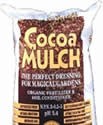 Cocoa Mulch may be a great nutrient-rich mulcher for your garden but it has hidden dangers when you are a pet owner.
Cocoa Mulch may be a great nutrient-rich mulcher for your garden but it has hidden dangers when you are a pet owner.
The sweet chocolate-like smell of the cocoa mulch attracts many pets to take a bite.
Unfortunately, the cocoa mulch causes severe inflammation, diarrhea, and vomiting when ingested by pets.
It is much better to use grass cuttings as mulch and they are easily obtained if you use a good mulching mower.
Common Bermuda Grass causes itching in most common pets
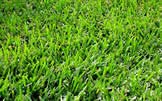 Bermuda grass is very popular for its lovely lush look. However, the pollen produced by this grass causes scratching and itching in a majority of pets.
Bermuda grass is very popular for its lovely lush look. However, the pollen produced by this grass causes scratching and itching in a majority of pets.
Instead of planting the more common Bermuda grass, go for the hybrid Bermuda grass because it produces little or no pollen.
Another perfect pollen-free choice is the female Buffalo grass species like the ‘UC Verde’ and ‘Legacy.’
The Elephant Ear plant is an irritant to pets
Elephant Ear plants are not as common as some of the plants and flowers on this list but they are growing in popularity.
These large leafed plants may look harmless but they aren’t.
 Skin contact with this plant can trigger a series of allergic reactions in pets including scratching and itching.
Skin contact with this plant can trigger a series of allergic reactions in pets including scratching and itching.
The leaves can also grow to extreme heights, being larger than a human in some cases.
The Wandering Jew is not so pet friendly
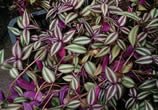 The Wandering Jew plant is another plant chosen for its unusual colorful appearance. It looks great. But those good looks cone at a cost.
The Wandering Jew plant is another plant chosen for its unusual colorful appearance. It looks great. But those good looks cone at a cost.
This is another plant that is unfriendly to our pets.
Apart from the pollen, direct skin contact with this plant can trigger allergic reactions in pets.
Allergic symptoms in dogs include runny eyes, red eyes, scratching, itching, and much more.
Snailseed Vine is a common plant that is harmful to your pets
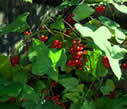 Producing lovely berries the Snailseed Vine is a gardener’s favorite.
Producing lovely berries the Snailseed Vine is a gardener’s favorite.
If I didn’t have cats I would most certainly cultivate this plant.
However, as a pet owner you should be wary of this climber.
Besides being poisonous upon eating, male Snailseed vines also produce pollen that is responsible for several allergies in pets.
Daylilies are an irritant to dogs
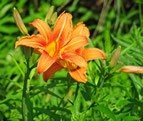 This popular plant among gardeners has approximately 35,000 hybrid species. It comes in a variety of colors and hues.
This popular plant among gardeners has approximately 35,000 hybrid species. It comes in a variety of colors and hues.
Apart from its pollen, direct skin contact with this plant can also trigger allergies in pets.
In the dogs, the daylily causes scratching and itching.
Castor Bean plants are unfriendly to both cats and dogs
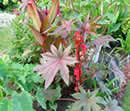 A popular garden plant that many unwitting pet owners grow from seed in their gardens.
A popular garden plant that many unwitting pet owners grow from seed in their gardens.
But, when eaten, the seeds of this plant are poisonous to pets.
Furthermore, its pollen is highly allergenic in both cats and dogs.
So, all-in-all this is one to avoid.
The Gas plant triggers allergic reactions in cats and dogs
 Dictamnus, more commonly known as the gas plant, is a common addition to most perennial gardens.
Dictamnus, more commonly known as the gas plant, is a common addition to most perennial gardens.
The bloom son this plant are kind to the eyes but they aren’t so kind to your pets.
The Gas plant is a 4 feet tall plant that is native throughout Asia and to most areas of Europe.
In addition to its pollen grains being hazardous to cats and dogs, direct skin contact with this plant also triggers allergic reactions in pets, especially dogs and cats.
8 Other common plants species that cause pet allergies
Following is a short list of other plants that cause pet allergies. This is far from a comrehensive list and I would recommend you reserach any plant you plant to cultivate before you plant it.
Some plants that cause allergens in animals:
- orchard grass
- wormwood
- willow
- Chinese Pistache
- box elder
- aspen
- pepper tree
- and much more.

Besides producing allergenic pollen, direct contact with a majority of these plants is known to trigger serious pet allergies. Just brushing against leaves, stems or flowers have your little friend in pain for days and continued exposure can have very nasty effects.
There are also plants and flowers that can cause severe symptoms and even death in our pets so be very careful when planting your garden.
How to Control Pet Allergies
 While it is difficult to cure pet allergies completely, it is possible to manage allergic symptoms and limit exposure to allergens.
While it is difficult to cure pet allergies completely, it is possible to manage allergic symptoms and limit exposure to allergens.
If you have planted any of the plants elaborated in this article, it may be wise to cut the tree and replace it with a pollen-free plant like bamboo palm.
If you cannot bring down the tree, you can limit your pet’s exposure to allergens by bathing the animal regularly with hypo-allergenic shampoo.
Administering anti-inflammatory medications, as prescribed by your vet, such as anti-histamines or by asking your vet to give the animal anti-allergy shots you can further protect your furry friend.
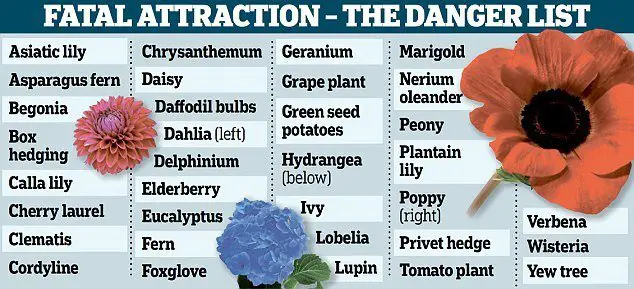
Final Thoughts
Just like humans, pets are also susceptible to allergies. Many common and popular plants are actually hazardous for pets.
The 37 plants listed above are popular and commonly found in American homes. If you own pets you should reconsider owning those plants.
If left untreated, allergies can lead to chronic infections or more complicated conditions like lick granuloma or dermatitis.
If you discover that your pet is suffering from any of the symptoms listed on this page, the first step should be to take him/her to your vet.
Once you know that the little guy or gal is suffering from an allergy the second step will be to figure out which plants are are causing the problem.
 The good news is that not all plants produce pollen that pets are allergic to.
The good news is that not all plants produce pollen that pets are allergic to.
Thus, pet owners should only cultivate, or adorn their homes, with allergen-free plants to prevent allergies in their beloved pets.
Some of the hypoallergenic plants include wildflowers, dahlias, chrysanthemums, dracaena, bamboo palm, and much more. So you don’t have to compromise on the aesthetic look of your garden.
You may also be interested in read the articles are amaryllis poisonous and are african violets poisonous.
Thanks for reading! I'm Michael — houseplant fanatic and your Pinterest plant guide.
Follow me on Pinterest for fresh updates 🌿



